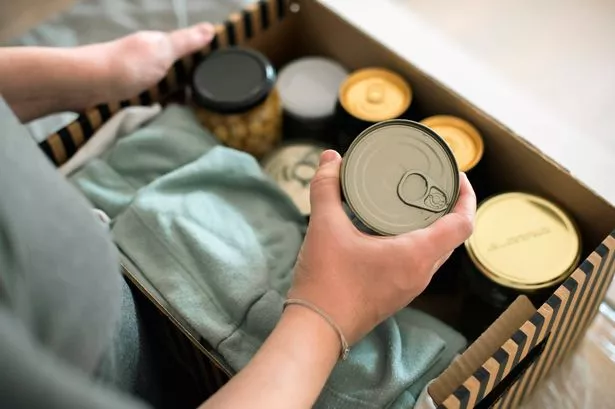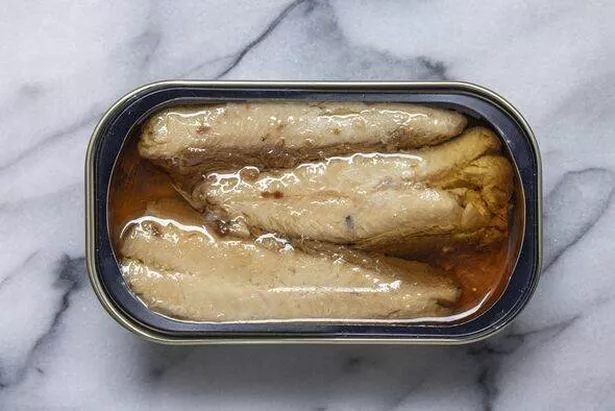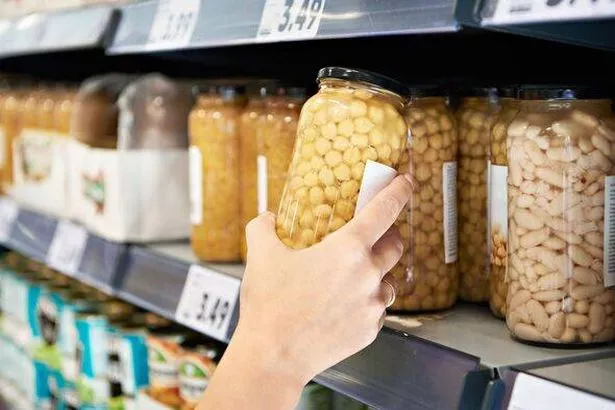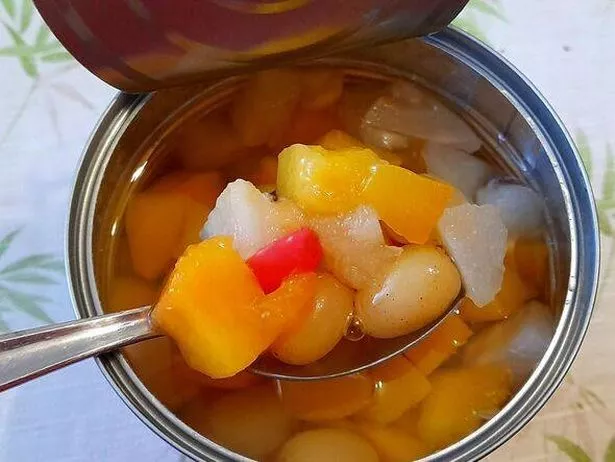Tinned foods are often overlooked in favour of fresh produce, but they can be just as healthy and affordable. Here, six top food and nutrition experts reveal the healthiest tinned foods to stock up on
15:20, 14 Oct 2025Updated 10:47, 17 Oct 2025
 Some tinned foods can have health benefits(Image: Emilija Manevska via Getty Images)
Some tinned foods can have health benefits(Image: Emilija Manevska via Getty Images)
People trying to eat a healthy diet will often head for the fresh produce section when shopping, overlooking the tinned foods. Tins are often considered type of convenience food, rather than being nutritious. But some store cupboard staples can be the healthiest, most affordable foods at the supermarket.
That’s why reporter Phoebe Cornish set out to find the most nutritious yet budget friendly foods around. She said: “I spoke with six top food and nutrition experts, and their answers revealed some surprising truths. All of them emphasised the same five inexpensive ingredients as vital for a healthy diet.”
As nutritionist Sarah Osborne wisely notes, “we mustn’t confuse convenience foods with fast food or junk.”
Phoebe wrote: “Experts recommend avoiding certain tinned products that are high in added sugars, salts, or artificial thickeners, such as many soups, ready-made pasta sauces, and baked beans with added sugar.
“Processed canned pasta meals are also discouraged due to their low nutritional value.”
However, there is immense benefit in getting creative with other ingredients, says Steve Bennett, a PCI-Qualified Health Coach: “Tinned foods break down barriers to healthy eating by providing convenience, affordability, and long shelf life, while quality options like fish, tomatoes, and legumes maintain their nutritional value.” Sardines, in particular, are highlighted by Steve as “nutritional superstars” because of their protein, omega-3 fatty acids, and calcium from edible bones.
 Sardines are deemed a nutritional powerhouse(Image: Getty)1. Sardines
Sardines are deemed a nutritional powerhouse(Image: Getty)1. Sardines
Phoebe revealed: “Sardines (and other oily fish like mackerel and salmon) were a clear winner across all expert recommendations.” Robbie Puddick states that both tuna and sardines “are excellent sources of protein and omega-3 fatty acids”, but sardines edge ahead nutritionally as they’re often tinned with bones, providing extra calcium, and tend to have lower mercury levels.
Canned sardines are processed in a way that softens the bones to the point where they are safe and easy to consume without a noticeable texture. Ann Garry, CEO and Director of Nutrition Training at Health Coaches Academy, who uses her experience as a nutritionist, says that the benefits of tinned oily fish, such as sardines, mackerel, or salmon, are abundant when you eat the fish and bones, which are packed with omega-3 fats vital for heart and brain health. They are also a good source of vitamin D and calcium.
Hannah Belsham, a health and wellbeing physiologist at Nuffield Health, names sardines, which cost between 49p and £1.20 for a 120g in most UK supermarkets, “one of the most nutrient-dense foods available.”
They are also convenient. Top rye crackers with cream cheese, sardines, lemon juice, and chives for a tasty, protein-rich snack.
2. Chopped tomatoes
Phoebe said: “Tinned tomatoes are a kitchen staple and a fantastic source of antioxidants, particularly lycopene.” Ann Garry highlights that lycopene is “actually more available to the body once cooked or processed,” making tinned tomatoes potentially “even better for you than fresh in some ways.” They also offer potassium, vitamin C, and fibre.
It’s worth stocking up your cupboard with tinned tomatoes, which can be purchased for as little as 39 for a 400g can. Steve Bennett says that it should be everyone’s “go-to base for quick sauces and stews”, suggesting that you can enhance the juicy product with fresh herbs, spices and garlic to maximise flavour.
“One tip I learnt from Italian chef, Giancarlo Caldesi, is to buy tinned plum tomatoes whole, not chopped, as they contain less water and are often of a higher quality”, said Steve.
 You will find chickpeas in tins and jars in most supermarkets(Image: Getty)3. Chickpeas
You will find chickpeas in tins and jars in most supermarkets(Image: Getty)3. Chickpeas
“This product may be less surprising, given that it is widely known that chickpeas are a powerhouse ingredient. This type of legume (costing around 49p to £1 for a 400g can) is a great source of plant-based protein, fibre, and complex carbohydrates, making it excellent for sustained energy and digestive health.”, said Phoebe.
Robbie Puddick, a nutritionist at Second Nature, notes that chickpeas “help stabilise blood sugar and keep you fuller for longer.” And they continue to benefit the body all the way down to your gut, says Hannah of Nuffield Health, thanks to their high fibre content, which promotes the growth of beneficial gut bacteria.
Phoebe suggested: “Eating a pot of hummus is one way to consume chickpeas, but be aware of the high fat content and added salt. Instead, incorporate chickpeas into curries, stews, sandwich filling, or simply roast and sprinkle on top of salads for a hit of essential micronutrients like folate, iron, and magnesium.”
 Save tinned fruit in syrup for a sweet treat and choose those in juice for daily consumption(Image: Getty)4. Tinned Fruit (in natural juice)
Save tinned fruit in syrup for a sweet treat and choose those in juice for daily consumption(Image: Getty)4. Tinned Fruit (in natural juice)
“While often viewed with caution, tinned fruits (costing 80p to £1.20 on average) can be a healthy option if the right choices are made.”, revealed Phoebe in The Express. Robbie advises that “tinned fruits retain most vitamins and can be a great option if your fruit bowl goes empty, but they often come in syrup”.
Robbie suggests choosing varieties in water rather than syrup to avoid unnecessary added sugars.
Ann Garry echoes this, stating, “Tinned fruits are a convenient way to get more nutrients into your diet, but only as long as you choose fruit tinned in its own juice rather than syrup, it retains a good amount of its vitamins and counts towards your five a day.”
Longevity expert says eat one cup of this a day to add four years to your life
Three symptoms in your mouth could be warning signs of serious ‘deficiency’
5. Black beans
Finally, Phoebe suggested stocking up on simple black beans. She wrote: “Similar to chickpeas, black beans are highly nutritious legumes that offer protein, fibre, and resistant starch. They cost approximately 49p to £1.15 for a 400g can and are excellent for promoting gut health, regulating blood sugar levels, and supporting cardiovascular well-being.”
Hannah notes they are “packed with anthocyanins – antioxidants linked to improved cardiovascular health and reduced oxidative stress.”
Lentils are another superb source of plant-based protein and fibre, contributing to gut health, stable blood sugar, and heart health. Vassiliki Sinopoulou, a registered dietitian, recommends lentils for their high protein, fibre, and micronutrient content, and points out the convenience that “there is no need for overnight soaking.”

